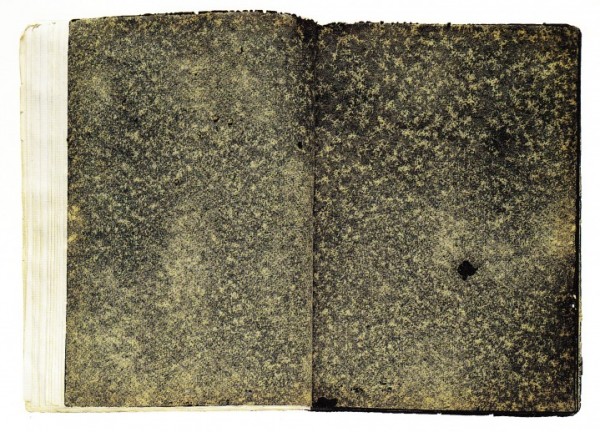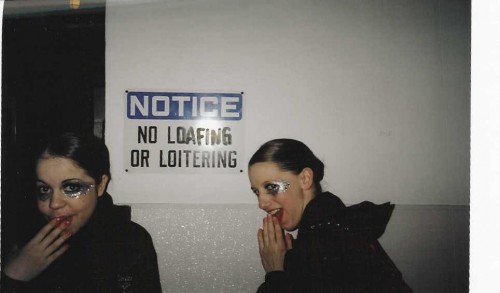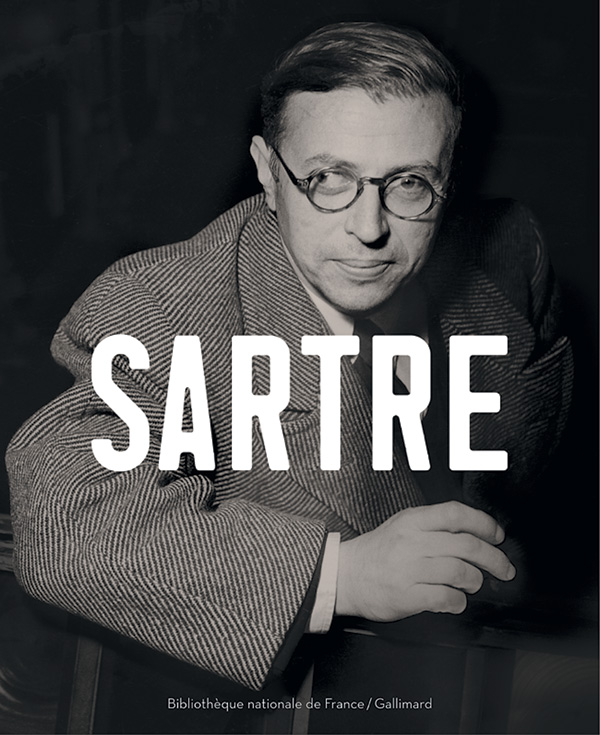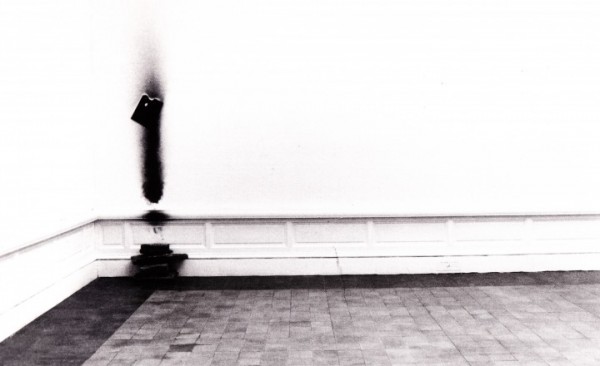Maurice Blanchot on inventing language in an unfamiliar tongue
“Since we happened to be in the street at the moment Paris was bombed, we had to take shelter in the metro. At that time these formalities were not taken seriously. And N. enjoyed anything that allowed her to leave her work. So the two of us were on the steps in the middle of an enormous crowd, the kind of crowd that is urgent and unwieldy, sometimes as motionless as the earth, sometimes rushing down like a torrent. For quite some time I had been talking to her in her mother tongue, which I found all the more moving since I knew very few words of it. As for her, she never actually spoke it, at least not with me, and yet if I began to falter, to string together awkward expressions, to form impossible idioms, she would listen to them with a kind of gaiety, and youth, and in turn would answer me in French, but in a different French from her own, more childish and talkative, as though her speech had become irresponsible, like mine, using an unknown language. And it is true that I too felt irresponsible in this other language, so unfamiliar to me; and this unreal stammering, of expressions that were more or less invented, and whose meaning flitted past, far away from my mind, drew from me things I never would have said, or thought, or even left unsaid in real words: it tempted me to let them be heard, and imparted to me, as I expressed them, a slight drunkenness which was no longer aware of its limits and boldly went farther than it should have. So I made the most friendly declarations to her in this language, which was a habit quite alien to me. I offered to marry her at least twice, which proved how fictitious my words were, since I had an aversion to marriage (and little respect for it), but in her language I married her, and I not only used that language lightly but, more or less inventing it, and with the ingenuity and truth of half-awareness, I expressed in it unknown feelings which shamelessly welled up in the form of that language and fooled even me, as they could have fooled her.”
–Maurice Blanchot, Death Sentence
Peyton Manning on Writing

“People always say, ‘Hang in there.’ And I went, ‘I never was out there, wherever there is. I’ve always been in there, I’ll always be in there.’ Wherever that is, I never have left.”
THE ARTIST ELUDES ANY SYSTEM
“When, in order to adapt to his destiny as an artist, Anselm Kiefer attempts to throw himself open to a dimension larger than himself, he does not retreat in the face of a force that may overwhelm and daunt him. He allows himself to be possessed and swept away by it, to become the arbiter of a challenge which ultimately implies the construction of the formal energy of art. To let ourselves be overwhelmed means to agree to be impregnated and to mediate that which submerges and overtakes us: to discover ourselves in order to discover. The artist, like the poet, eludes any system, whether good or bad, religious or moral: he negates himself, dies in favour of an unknown and indefinable force, and aspires to establish the right relationship with forms and their origins. He wants to succumb to their primacy and lets himself be shattered and overwhelmed not for any banal or general reason, whether it be ideological or sociological, anonymous or impersonal, but only for one exceptional reason: the survival of the language of art.”
quote-o-the-day
Loafing is the most productive part of a writer’s life.
James Norman Hall
True dat, Mr. Hall. Internet, coffee maker, gazing out the window at the snow—it may seem like not-writing, even now, but the mind stirs the pink shirt that becomes the fish that sings the flamelets of river, also known as words. For all the clatter of the laboriousness of writing, you should be thankful that every time your eye tingles cotton triangles, your lingual papillae meet ketchup (one of the only foods to trigger all 5 taste receptors: salty, sweet, bitter, sour, umami), your hand grips the perfect heft of a green bocce ball, you are indeed writing. Or you could read a book, another form of osmosis, but Hall isn’t talking about reading, me thinks, because reading is not loafing, no matter how far you drift away…so when someone on Facebook pokes you about yet another 8500 words, or when Joyce Carol Oates belches and out floats her 83rd lurid tale of obsession, etc., etc., relax, relax, go take a slow walk through a cow pasture, an interstate, a marriage, take a walk down through a brown couch, or a blog. You are loafing right now. I mean to say writing. Continue.
The good, the bad, and the wandering eye
Thus, there are only good and bad novels. The bad novel aims to please by flattering, whereas the good one is an exigence and an act of faith.
Power Quote: Foucault on Creation
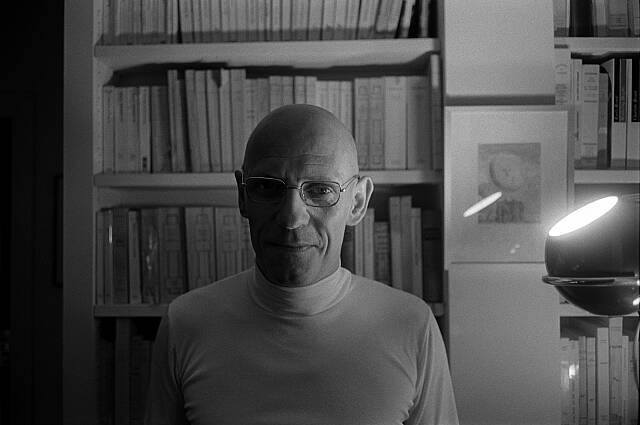
“My desire is that a book, at least for the person who wrote it, should be nothing other than the sentences of which it is made; that it should not be doubled by that first simulacrum of itself which is a preface, whose intention is to lay down the law for all the simulacra which are to be formed in the future on its basis. My desire is that this object-event, almost imperceptible among so many others, should recopy, fragment, repeat, simulate and replicate itself, and finally disappear without the person who happened to produce it ever being able to claim the right to be its master, and impose what he wished to say, or say what he wanted it to be. In short, my desire is that a book should not create of its own accord that status of text to which teaching and criticism will all too probably reduce it, but that it should have the easy confidence to present itself as discourse: as both battle and weapon, strategy and shock, struggle and trophy or wound, conjuncture and vestige, strange meeting and repeatable scene.”
[from the preface to the 1972 edition of History of Madness]
from The Bloody Chamber

Angela Carter, badass
Concluding line of Angela Carter’s “The Company of Wolves”:
“See! sweet and sound she sleeps in granny’s bed, between the paws of the tender wolf.”
Mute Prophecies
“In traditional cultures art offered visual and other types of definitions or embodiments of the prevailing cultural and philosophical measure. In times when the measure is broken into contradictory fragments, the role of the artist, in Kounellis’s view, is also shaped by contradiction. The artist must be at the same time social and political on the one hand, individually creative and self-expressive on the other. When the measure is changing, art can function either adversarily to destroy lingering credulity about the past measure or positively to fashion or define a new one. This is the great power of art and the great and serious role of the artist. The artist performs an interruption in the stream of measure, or of false measure as in our time; this interruption is the creative/destructive act through which the lingering appeal of the old measure may be destroyed and a new measure found. In Kounellis’s view, an artist who attempts something else in his or her work does not understand the solemnity of truly belonging to history. His or her art does no real work. It enters the world of the market or of entertainment or of the mass media but it does no real work with the roots of culture and the problem of human nature.”

